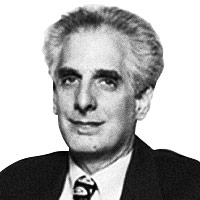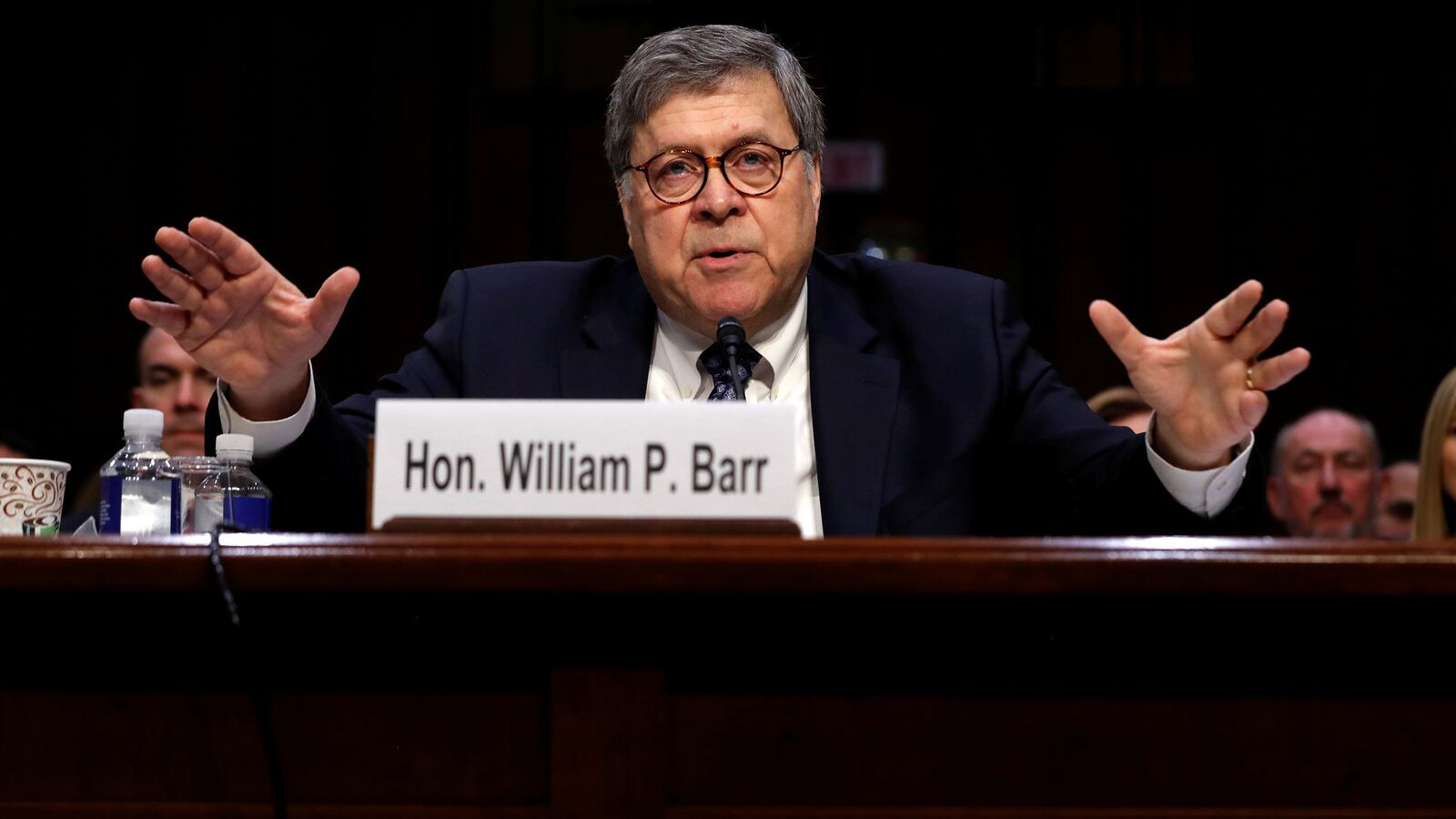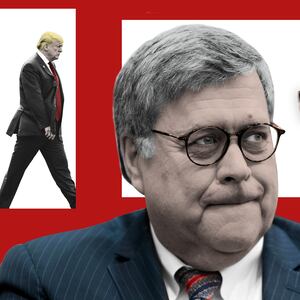William Barr is a very good lawyer. But at a time when the justice system is under attack every day by the president, the Department of Justice needs a leader who is not only a skilled attorney but also an exceptional public servant, and who will place principles of justice above the interests and demands of Donald Trump. After the first day of his Senate Judiciary Committee confirmation hearings, it is unclear if William Barr will meet that standard.
Committee Chairman Lindsey Graham opened the hearing with a recitation of Donald Trump’s favorite conspiracy theory: that a cabal of FBI agents set out to manufacture a case against Trump to deny him the presidency (but somehow bungled the scheme by keeping the case secret until after the election). As Barr well knew, despite the assiduous efforts of Devin Nunes, Trey Gowdy and Graham himself, virtually no evidence has emerged to support this claim.
Nonetheless, Barr suggested that he agreed with Graham’s call to use the DOJ’s resources to further pursue this conspiracy theory. This commitment, of a piece with Barr’s prior endorsement of the president’s demand that the DOJ pursue baseless allegations of wrongdoing against Hillary Clinton, raises serious questions about whether Barr will further Trump’s goal of employing the DOJ as a mechanism for pursuing political vendettas.
Barr also gave a troubling answer regarding an issue he will face immediately upon taking office: whether to recuse himself from the Mueller investigation. Barr’s history of informally consulting with Trump’s legal team, as well as his lobbying of Rod Rosenstein to interfere with Mueller’s investigation, could well lead the DOJ’s career ethics experts to advise Barr to recuse himself, as they likewise advised both Jeff Sessions and acting Attorney General Matthew Whitaker.
Most prior attorneys general, including Sessions, have deferred to such expert DOJ advice. Whitaker, however, chose to disregard the opinion of the department’s experts, a decision for which he (rightly) faced a hailstorm of criticism. Yet Barr stated that he might well follow in Whitaker’s footsteps and act directly contrary to the considered views of the DOJ experts. The fact that Barr, who, despite his estimable credentials, is not an ethics expert, is considering disregarding the views of wholly unbiased DOJ professionals regarding his own potential conflict of interest should concern the senators passing on his nomination.
Barr’s testimony also raised serious questions regarding the nominee’s forthrightness about his own views, as stated in the June 2018 memo regarding the Mueller investigation Barr sent to Rod Rosenstein, and also shared with Trump partisans. Barr described the memo today as a limited analysis of the scope of the federal obstruction of justice statutes. In fact, the memo argued that Trump has literally unlimited constitutional authority to order the commencement or termination of criminal investigations, including investigations of himself. Today Barr stated that it would be improper for the president to shut down an investigation to get himself out of trouble, a position that is extremely difficult to reconcile with his memo.
Barr did provide some degree of reassurance to the committee by stating that he will not carry out an order to fire Mueller absent good cause, in accordance with DOJ regulations. An open question remains, however, whether—given his extremely broad construction of presidential prerogatives—Barr would ultimately defer to a questionable claim by Trump that Mueller was acting wrongfully.
In any event, firing Mueller may no longer be a realistic option for the president, given that the prosecutor likely has finished the bulk of his work. Rather, the most important remaining question for the new attorney general may be whether the evidence Mueller has assembled will be fully shared with Congress and the nation. Here Barr’s testimony was far less reassuring.
Barr initially stated he intends to err in favor of transparency regarding the results of the Mueller probe. But when questioned further, Barr hedged. He indicated that he does not intend to share a confidential report received from Mueller with Congress. Instead, Barr stated that he plans to share a report about Mueller’s report that he will prepare. According to Barr, this is required, including to maintain grand jury secrecy—thus implying that he might strip evidence that Mueller obtained in grand jury proceedings out of the materials shared with Congress.
Because Mueller’s investigation has relied heavily upon testimony made before grand juries, as well as documents obtained through grand jury subpoenas, removing such materials from any report to Congress would almost certainly deny legislators access to critical information regarding Trump’s potential misconduct when they are considering impeachment or otherwise pursuing their own investigation of the president.
During Watergate, a federal court permitted the special prosecutor to share grand jury materials confidentially with the legislators who were considering the impeachment of Nixon. In accordance with that ruling, the prosecutor provided an account of those materials in the form of a confidential “road map” of the investigation issued in the name of the grand jury, together with supporting grand jury evidence.
Based on that precedent, Barr could well allow Mueller to share all of his relevant evidence directly with Congress on a similarly confidential basis. Furthermore, it is particularly important that Mueller be free to share all of the relevant evidence he has uncovered with Congress, since much of the most important material may have been gathered in the counterintelligence element of the investigation—which may never be otherwise disclosed in an indictment or other court proceeding.
The fact that Barr is nonetheless suggesting that he might prevent Mueller from directly sharing the evidence obtained in his probe with Congress raises very serious concerns. Those concerns are all the greater when one considers that Barr has long had a broad view regarding the scope of the executive privilege, a privilege that Rudolph Giuliani has stated that the president may assert in a gambit to keep evidence from Mueller investigation away from Congress.
In sum, while William Barr may have the credentials for the job, his testimony so far raises serious questions about whether he is the right person to oversee the nation’s justice system at a time that the president is attempting to undermine it.







